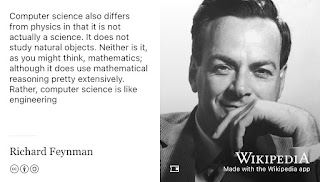History Of Physics - Definitions Theoryand their various types | Modern to classical |
History Of Physics
The history of physics dates back to ancient civilizations, with early thinkers such as the Greeks and the Chinese making important contributions to the field. However, it wasn't until the Scientific Revolution in the 17th century that physics emerged as a distinct and separate scientific discipline.
In the 17th century, Galileo Galilei laid the foundation for modern physics with his experiments on motion and the laws of mechanics. Isaac Newton further developed the laws of mechanics, introducing the laws of gravitation and calculus, and revolutionizing the way that scientists understood the natural world.
In the 19th century, the field of electromagnetism emerged, with Michael Faraday and James Clerk Maxwell developing the theory of electromagnetism and the electromagnetic field. This led to the invention of the telegraph, the telephone, and other electrical devices, transforming society.
In the early 20th century, the theory of relativity and quantum mechanics emerged, with Albert Einstein and Max Planck respectively laying the foundation for these new fields. These theories fundamentally transformed the way scientists understood the universe, leading to discoveries such as the structure of the atom, nuclear energy, and the development of technologies such as the transistor and the laser.
In the latter half of the 20th century, the field of particle physics emerged, with the discovery of the Higgs boson and the study of subatomic particles. In addition, the development of new technologies such as the computer and the internet enabled physicists to conduct more complex simulations and experiments, leading to new discoveries in the field.
Today, the field of physics continues to advance rapidly, with ongoing research and exploration leading to new discoveries and advancements that continue to transform our understanding of the natural world.


._Oil_painting_by_an_Italian_pain_Wellcome_V0023487.jpg)




.jpg)


Comments
Post a Comment